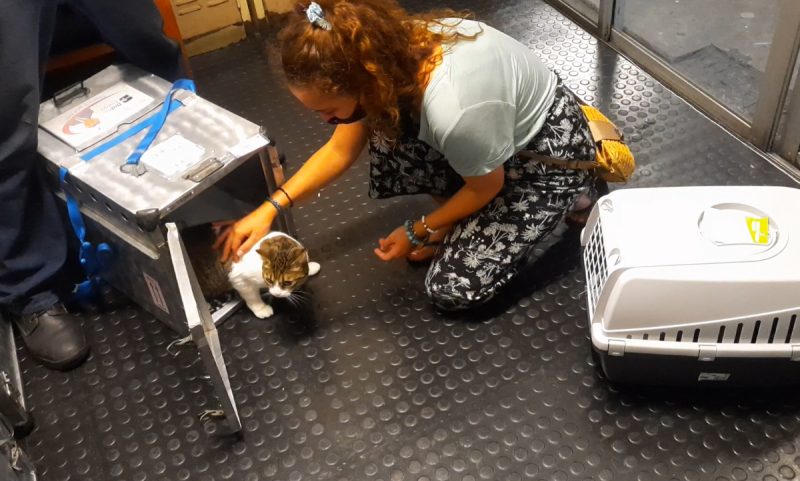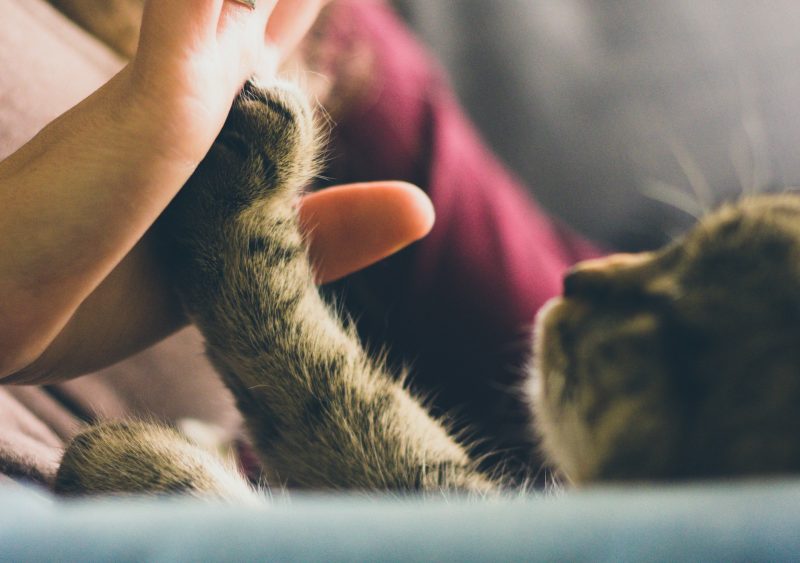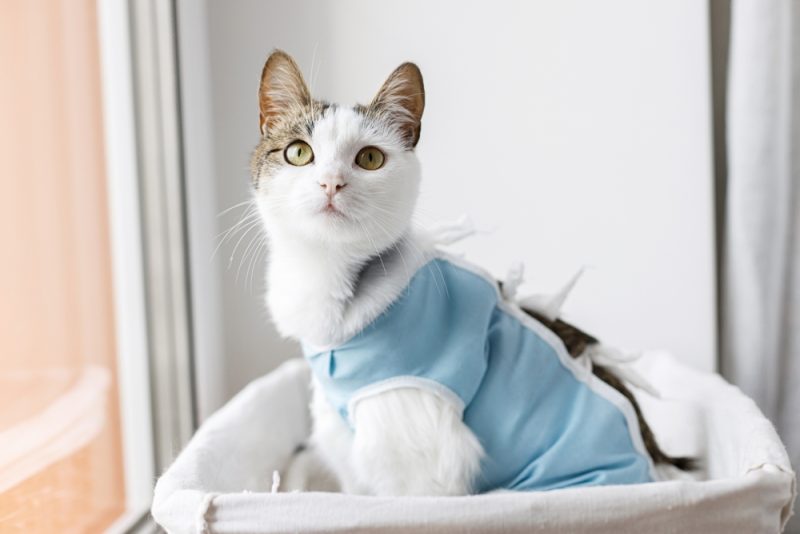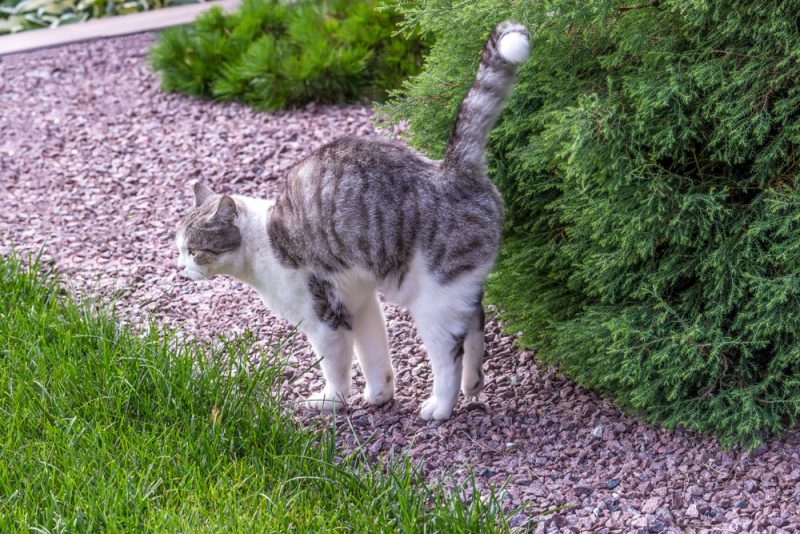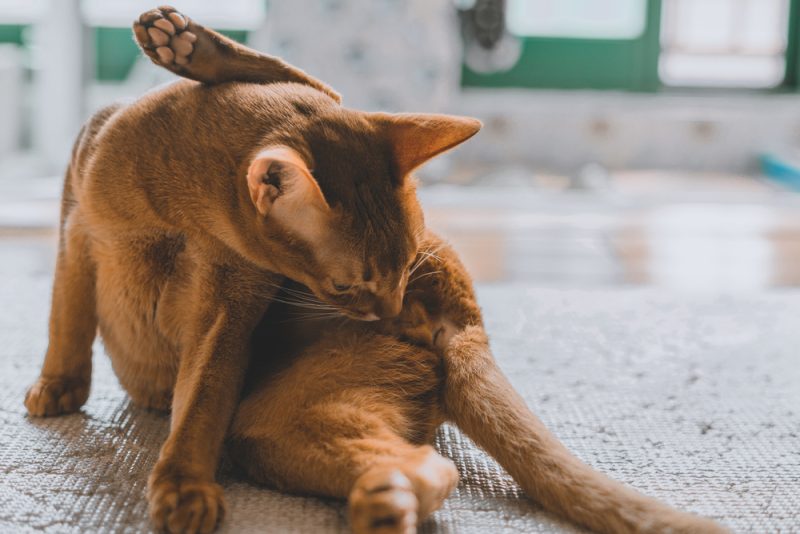Many cats know to keep away from hot stoves. Most can feel the heat coming off of it and can guess that it probably isn’t a good idea to touch it. However, some cats can jump on the hot stoves and injure themselves. These sorts of injuries aren’t common, but they are something that you have to think about as a pet parent.
Luckily, there are several things that you can do to keep your feline safe. Learning how to keep your cat off the stove is thankfully quite simple and there are lots of options to consider. We look at several of these methods here.

How to Protect a Cat From a Hot Stove
1. Place Mats on the Counter
Your cat is much more likely to be burned on the stove if they are used to jumping onto the counter. To deter your cat from jumping there, you may want to consider placing sticky placemats on the countertop. Cats don’t like the feel of the sticky mats, so they will avoid them at all costs. You can keep these mats on your countertop for a short time until your feline stops trying to jump up. Then, they can usually be removed.
You can also just use double-sided tape, but this requires quite a bit more prep work.
2. Use a Citrus Cleaner

Many cats do not like the smell of citrus. In fact, one of the easiest ways to deter a cat from an area is to spray a citrus scent. Fortunately, there are many citrus-scented cleaners. You want to use one that uses real citrus, though. One that is fake-scented may not work quite as well. You can even make your own citrus cleaner using orange peels and distilled white vinegar.
3. Use Cookie Sheets
Cookie sheets provide a precarious situation for your feline. If you place them close to the edge, they may slip around when your feline lands, which can frighten them. They also aren’t comfortable under their paws and may make scary noises when the cat lands on them. This is a suitable alternative to aluminum foil or sticky tape. However, it may not work quite as well. Some cats seem completely fine with cookie sheets, while they seriously spook other felines.
4. Use Aluminum Foil

You can use aluminum foil to deter cats from jumping onto surfaces. Cats do not like the feel or sound of aluminum foil on their paws. Layering aluminum foil on the top of your stove and countertop can deter cats from jumping on them and work as a homemade stove protector for cats.
Of course, you can’t leave the aluminum foil on your stove while it’s hot. You’ll need to remove it before you start cooking. The idea is that leaving the aluminum foil on the stove at other times will cause your cat to avoid that area.
5. Block Common Landing Areas
If your cat tends to jump on the counter at the same place, put something there to block it. This can be something like a fruit bowl or even just moving your coffee maker to the spot. If your cat can no longer use their known jumping area, they may stop jumping on the counter at all. This doesn’t always work, though. Many cats may simply decide to jump up somewhere else.
6. Provide Other Climbing Areas
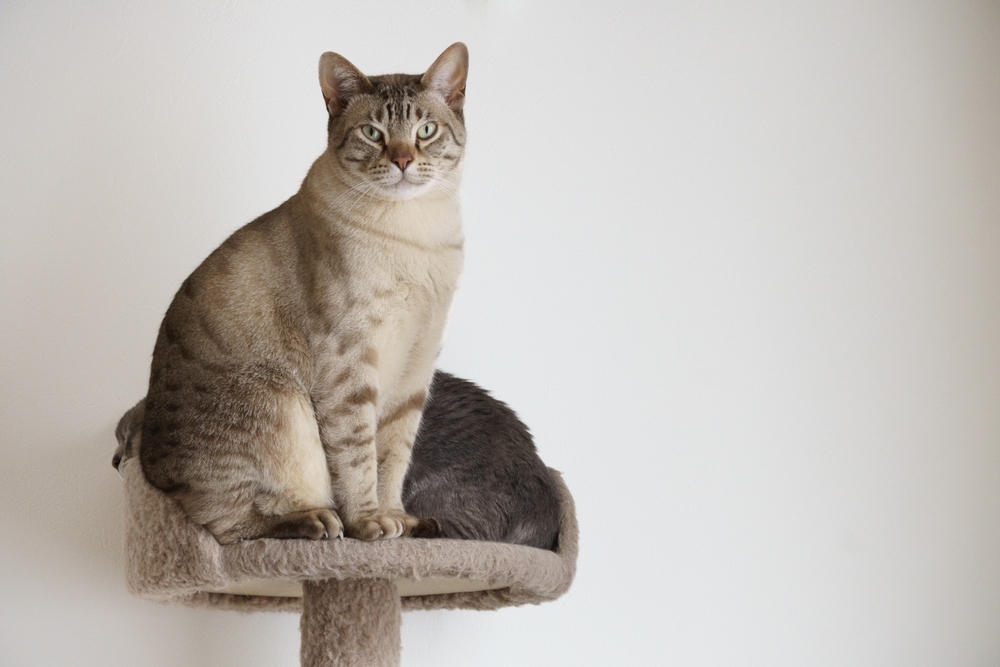
Many cats need to climb. Some breeds are more prone to climbing than others. However, all cats will need some sort of climbing structure that they can enjoy from time to time. Providing these sorts of apparatuses can prevent your cat from climbing on things like the counter and stove to begin with.
You should preferably put the structure in a completely separate room to discourage your cat from using the counter for climbing. Placing it near windows is a solid option, as many cats like to sit on it and stare out the window. You may still need to also use other methods to ensure that they stop using the counter.
7. Spend Time With Your Cat
Many cats jump on the counter because they want attention. You may spend quite a bit of time around the counter, so it is an easy way for them to get your attention. Spending time with your cat before they start their stove-jumping behavior is an easy way to prevent it. Often, eliminating the need for your cat to jump on the counter is the best way to prevent it.
8. Provide Extra Stimulation
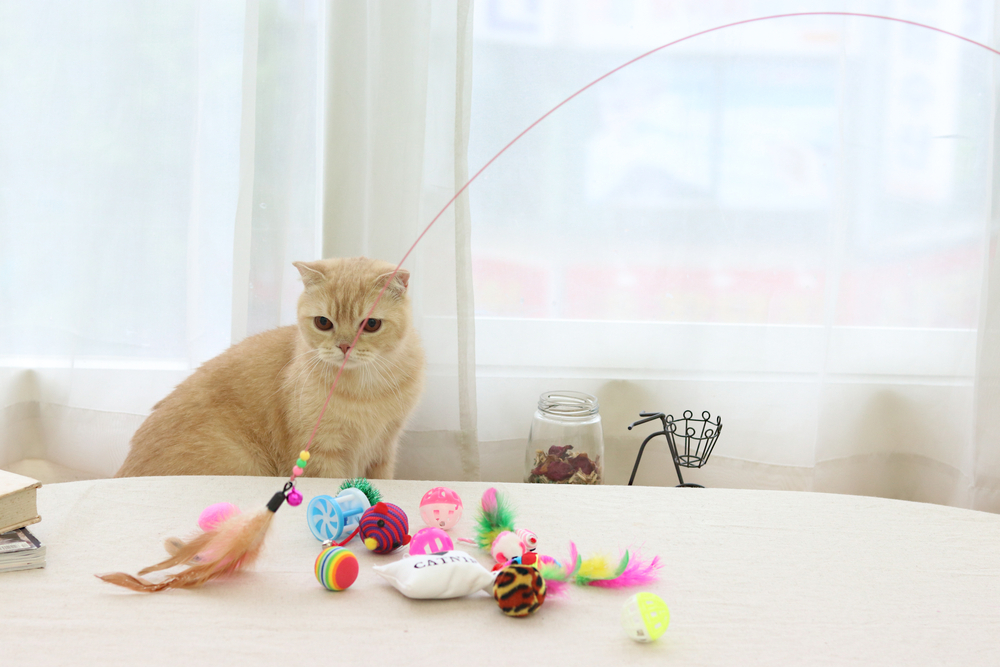
Some cats may go exploring because they are bored. If you keep your cat’s attention elsewhere, they may completely forget about the counter and the stove. Puzzle toys are great for this, as they can keep your cat busy for a long time. Regular toys work as well, especially those that contain catnip. Basically, anything that your cat likes can work as a distraction and wear out your cat.
You can also provide more one-on-one playtime, allowing you to provide stimulation and spend time with your feline.
9. Don’t Leave Out Food
You shouldn’t leave food or anything else that your cat may find interesting on the counter or the stove. You don’t want to encourage your feline to get on the counter, and leaving food around is going to make it more likely that you’ll encounter a cat on the stove situation. Plus, many human foods are not safe for cats. Things like onions and garlic are particularly dangerous and commonly used in human meals.
Ensure that the counters are clear before you leave the room, including leftovers, packaged goods, and dry herbs.
10. Remove Your Cat From the Counter
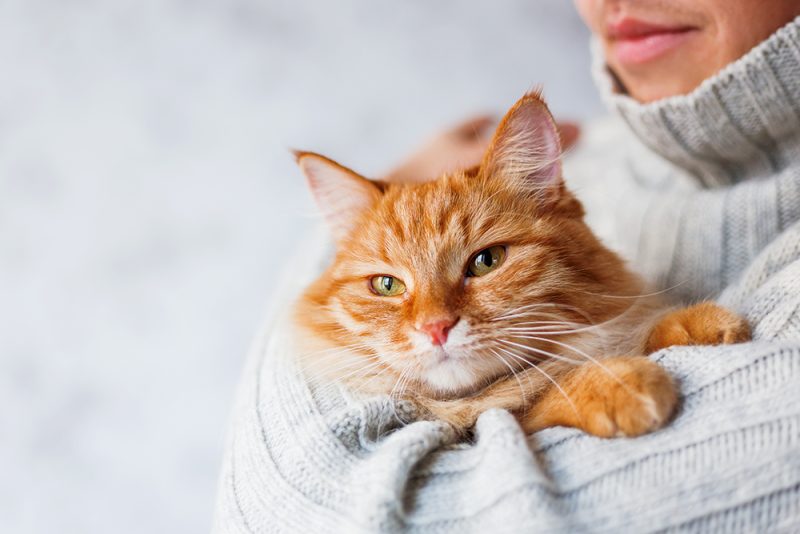
Preferably, you should prevent your cat from getting on the counter in the first place using one of these methods. However, if you find your cat on the counter for whatever reason, you should gently remove them and say “off.” There is no need to push the cat, as this can injure them. Instead, you should gently pick them up and set them on the floor.
If they jump back on the counter, step two would involve making it physically impossible for the cat to reach the counter. Getting the cat out of the kitchen and closing the door is easy, but if you have a studio apartment, you would need to either block the way up to the counter or place the cat inside a crate or a transport box. Do not give the cat attention for a period of 10–15 minutes. By having a consequence like this, the cat will eventually learn that jumping onto the counter gets them out of the game.
Chances are, your cat was looking for attention, but providing attention as a consequence of jumping on the counters will only mislead your cat. You should also provide an alternative safe, high space for your cat to jump on and give the cat praise, attention, and an occasional treat when they are using those spaces. The cat will eventually learn where is the right place to be.
11. Never Let Your Cat on the Counter
The stove is often connected to the counter. Cats will not see any difference between the countertop and the stove. Therefore, you cannot set these areas apart while training your feline. Preferably, you should never allow your feline to be on the counter, starting from the day they are brought into the house. You should always remove them immediately if you notice them up there and use other methods to deter particularly determined cats.
If you’ve been allowing your feline on the counter, it may be more challenging to reverse the habit and protect their paws from the stove’s heat, but it isn’t impossible. It is easiest to replace the habit of counter-surfing with another, such as using a cat tree. Using multiple methods that approach the problem from different angles will likely work the best.
Featured Image Credit: Yavdat, Shutterstock





